
The 10 Best White Label Products To Sell This Year
Take your business to the next level by exploring our curated list of the best white label products to sell. Imagine launching your own brand this week with innovative products like a high-performance massage gun, a cozy memory foam dog bed, or a rejuvenating skin care serum - all without the hassle of in-house manufacturing.
White labeling empowers you to quickly enter the market by rebranding products produced by trusted manufacturers. This cost-effective strategy allows you to capitalize on market trends while focusing on building your brand identity and customer loyalty.
In the following guide, you'll discover 10 compelling ideas for popular white label products that are ready to be customized and sold under your unique brand. Whether you're an emerging entrepreneur or an established business owner looking to diversify your product line, these opportunities can help you stand out and drive revenue.
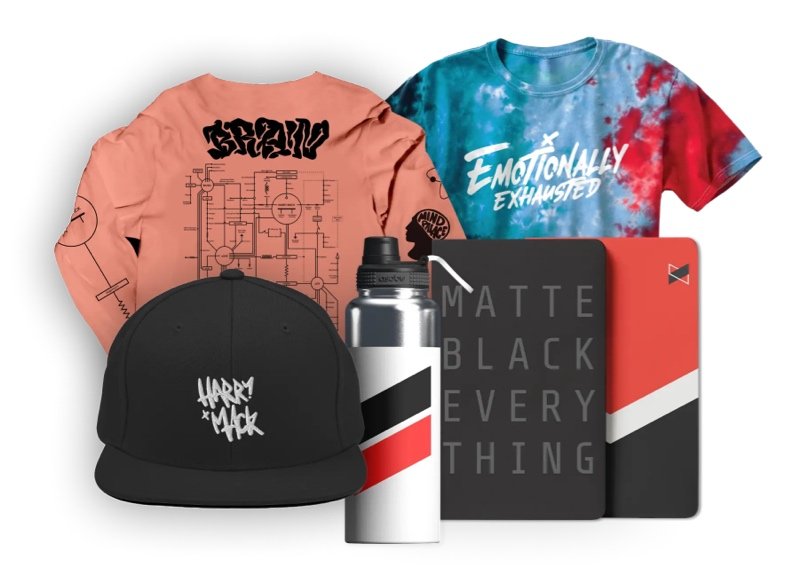
What is a White Label Product?
A white label product is a generic product or service manufactured by one company that is later rebranded and sold by other companies. This model allows you to leverage ready-made products - such as cosmetics, electronics, household goods, and software - while adding your own branding. By customizing product packaging, logos, and features, you can make these products uniquely yours without the hassle of starting from scratch.
Retailers often source white label products directly from manufacturers or through print-on-demand services. This approach is especially valuable if you're looking for a cost-effective way to quickly enter the market and meet consumer demand. For those wanting to build their brand efficiently, white labeling offers an accessible route to market without heavy manufacturing investment.
While white label products are similar to private label products, there are key differences. Private label items typically undergo additional customization tailored for individual retailers, including unique ingredients or materials and bespoke packaging. In contrast, white label products usually offer more limited customization options, making them a straightforward solution for sellers who need a fast and effective product launch.
For instance, a hair care product sold under Walgreens’ own brand would be considered a private label product, due to its unique formulation and packaging. On the other hand, a phone case available under multiple brand names on Amazon exemplifies a white label product - offering a standardized product that is simply rebranded by different sellers. This differentiation is crucial for understanding how each approach can solve your business challenges and fulfill your branding needs.
10 Best White Label Products for Your Business
Below, you'll find a curated list of the 10 best white label products that offer tremendous opportunities for building or expanding your brand. Each product has been selected based on its market potential, ease of customization, and scalability, making them ideal for entrepreneurs looking to quickly enter or enhance their niche.
Whether you're a seasoned business owner or just starting out, these products provide a solid foundation to establish your own branded line with minimal upfront investment. From innovative tech gadgets to essential health and beauty items, there’s something here to suit a variety of industries and target audiences.
Read on to discover how each white label product can empower your brand to stand out in a competitive market, enabling you to focus on marketing and building customer relationships while leaving production and logistics to trusted partners.

1. Essential oils
White label essential oils offer a unique opportunity to tap into the booming wellness and self-care market. With consumers increasingly seeking natural products for relaxation and therapeutic benefits, rebranding these products allows businesses to quickly enter a thriving industry. Whether you're a budding entrepreneur or an established brand, offering white label essential oils can enhance your product portfolio without the need for extensive product development.
By partnering with a reputable manufacturer, you can source high-quality essential oils, diffusers, and bath products that are ready to be customized with your brand’s identity. This strategy not only saves time but also minimizes risks associated with product creation. White label solutions give you the flexibility to experiment with different wellness products, enabling you to respond swiftly to emerging trends and consumer preferences.
For wellness influencers and online sellers, branded essential oils are an excellent way to monetize a personal brand or enter the ecommerce space. The ability to infuse your unique style and message into these products helps build trust and loyalty among customers. Moreover, leveraging the established quality of white label products can position your brand as a reliable source of natural and therapeutic items.
The trend towards natural remedies and self-care continues to grow, making white label essential oils a profitable choice for market entrants. As you build your wellness brand, offering a curated selection of essential oils and related products can set you apart in a competitive market. This approach not only caters to a diverse customer base but also opens the door to creating comprehensive self-care packages that resonate with today’s health-conscious consumers.

2. Cosmetics and skin care products
White label cosmetics and skin care products offer an exceptional opportunity to distinguish your brand in a crowded marketplace. While many products are manufactured with identical formulations, the magic of white labeling lies in your ability to transform these offerings through unique branding, customized packaging, and tailored marketing campaigns.
This means you can launch a product that truly reflects your brand’s identity and appeals directly to your target audience.
Many leading beauty brands, including renowned names like Kylie Jenner’s cosmetics line, rely on specialized manufacturers such as Seed Beauty. These companies provide both private-label and white label solutions, empowering brands like ColourPop to achieve rapid market entry without the burdens of in-house production. This model not only streamlines the production process but also ensures a consistent quality standard across your product line.
If you're considering launching your own makeup line, starting with a single flagship item - such as a standout lip balm - can be a strategic move. This focused approach allows you to understand the intricacies of the white label process while establishing a solid foundation for your brand. Once you’ve honed your strategy, you can expand your portfolio to include a broader range of skin care and cosmetics products that resonate with your customers.
In a market where product formulations often overlap, white label solutions let you shine through the power of branding and creative design. By leveraging these customizable options, you can build a memorable beauty brand that meets consumer demands and sets you apart from the competition.

3. Coffee beans
White label coffee beans provide a unique opportunity to expand your product line beyond the typical coffee mug. With this approach, you can create a distinctive brand experience by offering branded coffee beans that reflect your company's identity and quality standards. The customization process allows you to craft custom blends that appeal to a wide range of coffee enthusiasts.
Partnering with manufacturers who support white label production means you don't have to worry about the complexities of coffee production. Instead, you can focus on developing your brand’s story, designing eye-catching packaging, and tailoring your marketing strategy. This model is perfect for entrepreneurs looking to break into the coffee market without the heavy upfront investment in production facilities.
There are many companies dedicated to helping new brands create and sell coffee on a white label basis. For example, Dripshipper is a white label coffee bean seller app that seamlessly integrates with Shopify stores, enabling you to manage orders and grow your brand online. This integration makes it easier to launch and scale your business while focusing on what matters most: your customers.
Leveraging white label coffee beans not only allows you to enter the bustling coffee market but also positions your brand as a provider of high-quality, customizable coffee experiences. With the right partners and a compelling brand narrative, you can capture the attention of coffee lovers and drive success in a competitive industry.
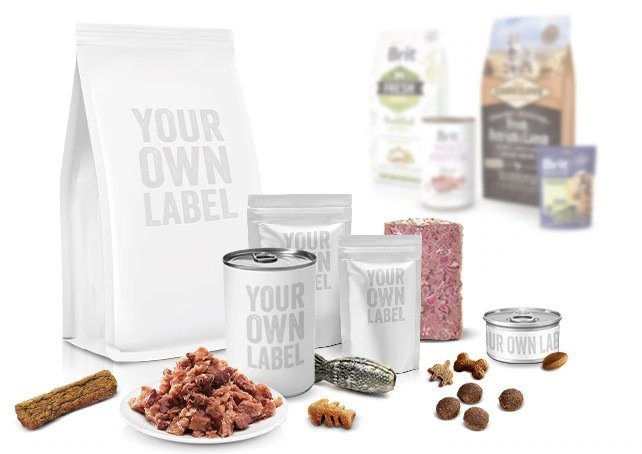
4. Pet accessories
White label pet accessories open up a lucrative market for those looking to tap into the booming pet products industry. With an increase in flexible working arrangements, pet companionship has become more significant than ever, driving demand for high-quality, customizable pet items.
By partnering with manufacturers that offer white label solutions, you can offer a range of pet products—from cozy dog beds and engaging cat toys to stylish aquarium accessories—all tailored to fit your brand. This approach allows you to build a unique product line without the complexities of in-house production, enabling you to focus on strong branding and targeted marketing.
For pet service businesses, white label pet accessories present an excellent opportunity to diversify and add branded products to your existing portfolio. This not only enhances your brand identity but also meets the growing needs of pet owners who seek reliable and innovative pet solutions.
Entering the pet industry with white label products means you can quickly adapt to market trends and consumer preferences. By providing high-quality, custom-branded accessories, you can establish your brand as a trusted name in the thriving world of pet care.
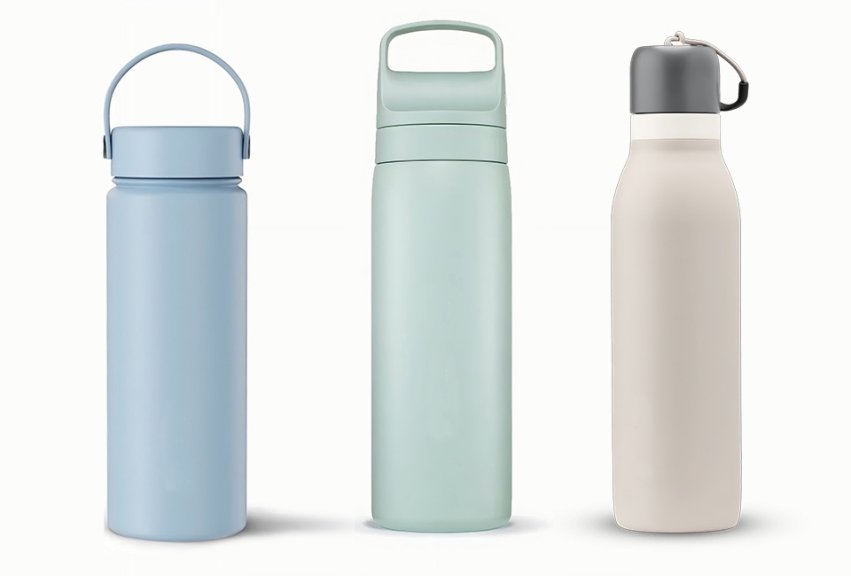
5. Reusable water bottles
White label reusable water bottles offer an affordable and practical opportunity to expand your product range. These versatile items are a favorite for both everyday use and as unique merch for artists and designers. With a low production cost and high usability, water bottles serve as the perfect canvas for creative designs and custom logos that drive brand awareness.
For businesses in the digital fitness or wellness sectors, branded water bottles provide a tangible way to connect with customers. Whether you offer online yoga classes or virtual personal training, a customized water bottle can enhance your brand presence as a physical product that complements your digital services. This fusion of practicality and promotion not only reinforces your brand image but also creates additional revenue streams.
When designing your own white label water bottles, consider experimenting with different materials such as stainless steel, glass, and silicone. Each material offers distinct benefits and appeal, catering to varied customer preferences and lifestyle needs. Selecting the right material can enhance the quality of your product, further solidifying your reputation for offering premium reusable water bottles.
In addition to boosting your brand identity, these water bottles align with growing consumer interest in sustainable and eco-friendly products. By incorporating eco-conscious design and materials, you not only promote environmental responsibility but also meet the demands of a market that values sustainability alongside style.
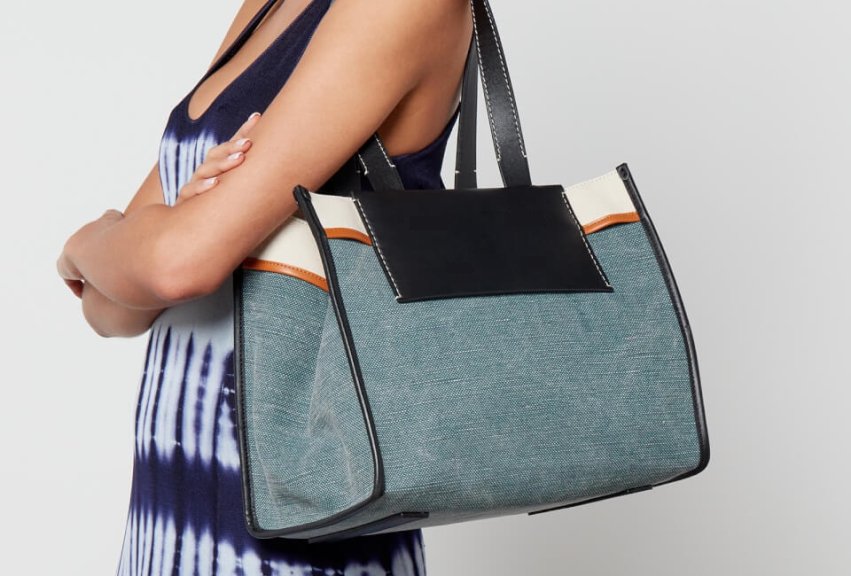
6. Tote bags
White label tote bags are an eco-friendly way to boost your brand's image while promoting sustainability. As consumers increasingly support green initiatives, offering branded reusable tote bags not only reinforces your commitment to the environment but also serves as a powerful marketing tool for increasing brand awareness.
For retailers and eco-conscious businesses, white label tote bags offer a dual advantage. They help reduce the reliance on single-use plastics while providing a practical, stylish alternative for everyday use. By customizing tote bags with your unique logo and design, you create a lasting impression that encourages customer loyalty and word-of-mouth promotion.
Graphic designers and artists can also capitalize on white label tote bags as a versatile canvas for their work. The large, flat surface of a tote bag is ideal for showcasing creative designs, making it a perfect opportunity to monetize your art. Additionally, these products are often available through print-on-demand services, making them accessible even for those with limited upfront investment.
Embracing white label tote bags is a smart strategy for businesses looking to align with sustainable practices. By offering an environmentally friendly product that doubles as a promotional item, you can effectively meet consumer demands while elevating your brand in a competitive market.

7. Beach towels
Beach towels offer a fantastic opportunity as a white label business, especially as a seasonal product that's always in demand. With the flexibility to customize designs, you can cater to various markets—from surf schools looking to offer branded merchandise to artists transforming their drawings or paintings into stylish, functional products.
How to Succeed with a Beach Towel Business:
- White Label Strategy: Partner with manufacturers to produce towels under your brand, minimizing production hassle.
- Customization: Tailor designs for different niches—whether it's vibrant prints for surf schools or elegant artwork for lifestyle brands.
- Seasonal Demand: Capitalize on the steady demand during warmer months and outdoor events.
- Cross-Promotional Opportunities: Leverage partnerships with fitness and outdoor service businesses to expand your market reach.
By tapping into the versatility of beach towels, you can create a profitable, customizable product line that resonates with various customer segments while enjoying a recurring seasonal demand.
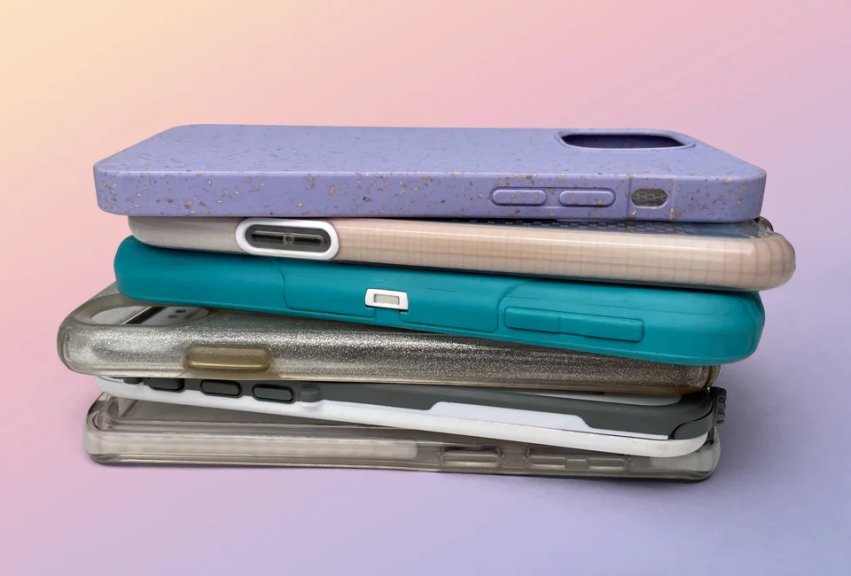
8. Phone accessories
White label phone accessories are a fantastic business opportunity because they are inexpensive to produce, widely available, and easily customizable. This means that designers and artists can leverage their creativity to develop custom phone cases that showcase their work on a highly affordable accessory. In addition to phone cases, you can offer complementary items like charging cords and car mounts, ensuring a diversified product line.
Another advantage of entering this niche is that phone accessories tend to have a high turnover rate since users frequently upgrade or change their devices. This makes the products very good to sell, as customers are always looking for fresh, trendy designs and functional gadgets to complement their new phones. The constant demand creates a sustainable market with ample opportunities for repeat purchases.
For entrepreneurs looking to break into the industry, resources such as Shopify’s YouTube channel provide a comprehensive beginner’s guide on making and selling phone cases. By leveraging these educational tools, you can learn effective production, branding, and marketing strategies to successfully launch your own home-based business in this dynamic, fast-paced market.
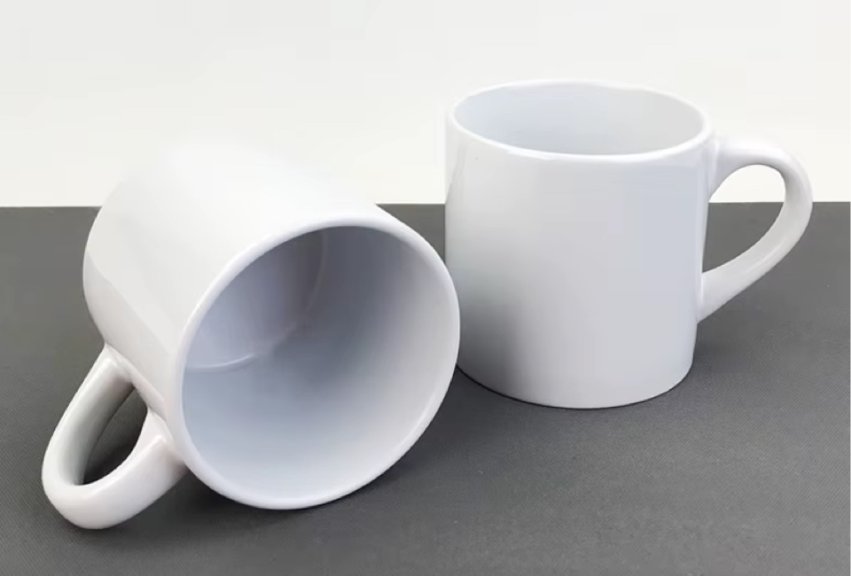
9. Mugs
Explore the versatile world of mugs and drinkware by creating a home business that offers customized designs. From ceramic mugs emblazoned with local landmarks and references to travel mugs engraved with national park wonders, there are countless options to personalize these everyday items. Adding white label branding to mugs and flasks allows you to tailor products to different niches, catering to various customer tastes and preferences.
This is an excellent time to get into the drinkware space, as the demand for specialist coffee continues to rise. With coffee culture booming, the market for uniquely designed mugs is expected to double by 2030. Capitalize on this growth by offering limited edition designs, custom artwork, or even collaborations with local artists, which can set your brand apart from generic mass-produced options.
By focusing on quality, creativity, and local appeal, you can build a strong brand identity that resonates with customers. Use effective marketing strategies, such as social media promotions and influencer partnerships, to reach a broader audience and drive sales. With continuous innovation and customization, your mug business can become a go-to choice for consumers seeking unique, high-quality drinkware.
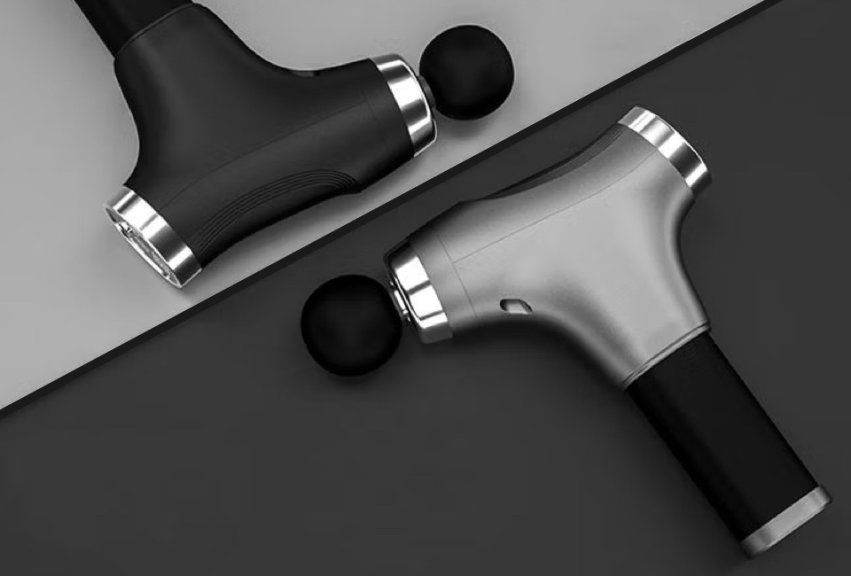
10. Massage guns
Massage guns have quickly become a breakout product, offering effective post-workout therapy and relief from muscle soreness. These innovative devices are designed to provide deep tissue massage, helping athletes and fitness enthusiasts recover faster and perform better. As a consumer gadget, massage guns are a prime candidate for white label branding, allowing you to customize high-quality products for a mid-market audience.
If you're considering expanding your product line into higher-priced items, massage guns can be an excellent addition. By sourcing products from platforms like Alibaba, you can find a wide range of massage guns that are ready for customization. With your own branding, you can position these products as premium offerings that cater to both fitness aficionados and individuals seeking everyday relief from muscle tension.
Leveraging the rising demand for wellness and recovery products, you can build a strong brand presence in the competitive consumer gadget market. Focus on quality, user experience, and innovative design to differentiate your massage guns from generic alternatives. With targeted marketing and strategic partnerships, your white label massage gun business can capture a significant share of the growing health and fitness market.

How to Choose a White Label Supplier
When selecting a white label supplier, your brand’s success depends on partnering with a manufacturer who meets your quality standards and can deliver on time. Follow these steps to ensure you choose the right partner for your business:
Check the Supplier’s Reputation
Begin by conducting a thorough background check. Research potential suppliers through industry forums, reviews, and testimonials to confirm their reliability and track record with leading brands. Look for indicators of long-term partnerships and positive feedback from businesses similar to yours. A reputable supplier will have a consistent history of excellence and support.
Verify Product Quality
Quality is non-negotiable. Request detailed documentation about the manufacturing process, including quality control measures and compliance certifications such as ISO or GMP. If you’re sourcing products like dietary supplements, ensure your supplier adheres to FDA guidelines and has robust health and safety protocols in place. Always ask for product samples to assess quality firsthand before placing bulk orders.
Explore Customization Options
Your products should reflect your brand’s unique identity. Confirm that your supplier offers customization options, from custom packaging and labels to more extensive modifications like recipe or feature adjustments. This flexibility allows you to differentiate your product in the market and create a distinctive brand experience that resonates with your target audience.
Review Lead Times and Scalability
Efficient production and delivery are crucial, especially during peak sales periods. Discuss production schedules, delivery timelines, and contingency plans for handling sudden increases in order volume or supply chain disruptions. If you’re using a print-on-demand service, compare supplier lead times within the platform to ensure they align with your business needs and seasonal demand.
Test Customer Support and Communication
Strong, responsive customer support is essential for a successful partnership. Evaluate the supplier’s communication by engaging with their sales team, and look for a dedicated account manager who can address your needs promptly. Transparent, reliable customer service will help you resolve issues quickly and maintain a smooth operational flow.
Consider Domestic Suppliers
Whenever possible, choose domestic suppliers to benefit from shorter shipping times, reduced shipping costs, and easier communication with fewer language barriers. Domestic partners often provide more agile service and are better positioned to support your business in real-time, helping you respond quickly to market demands.
By thoroughly vetting suppliers through these steps, you can confidently choose a partner who not only meets your quality requirements but also supports your growth and brand integrity.
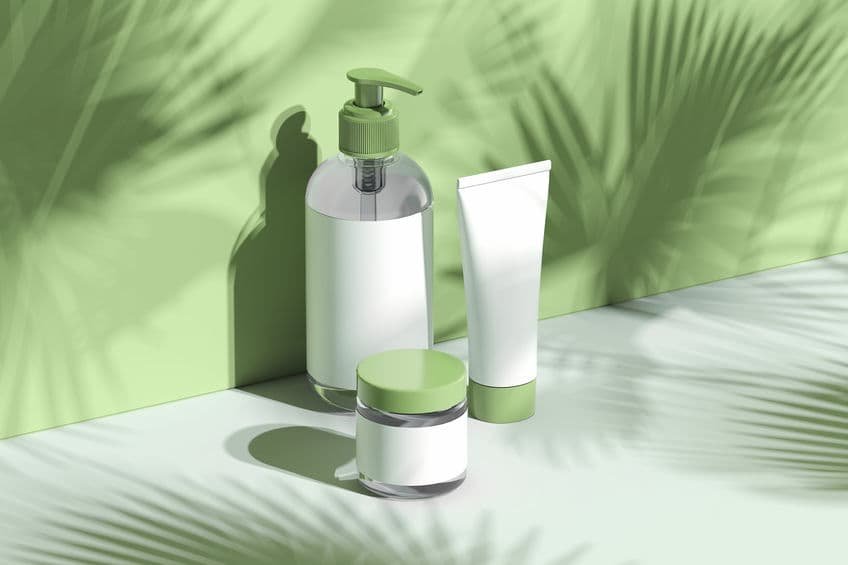
Best Industries for White Label Products
Brands are increasingly turning to white label solutions to quickly expand their product ranges across diverse sectors. In the Software as a Service (SaaS) industry, companies without the in-house expertise to develop software can purchase pre-built applications that they can brand as their own.
These white label SaaS products cover a range of consumer applications - from shopping and streaming platforms to ordering systems - allowing businesses to offer innovative tech solutions without heavy investment in development. In the health and beauty arena, everyday products like skin care creams, hair care solutions, and cosmetic items can be easily customized to reflect a brand’s identity, meeting consumer demand for high-quality, personalized products.
Moving into the food and beverages sector, there’s been a significant surge in the popularity of private label products, especially in organic and niche markets. White labeling allows food brands to offer specialty items that cater to specific dietary trends or local tastes without the need for large-scale manufacturing investments.
Similarly, in the clothing and accessories industry, fashion retailers can utilize white label production to launch branded lines of apparel and accessories. This approach reduces the complexities of in-house production while enabling rapid response to changing fashion trends. Consumer electronics is another promising field; white label products like headphones, smartwatches, and other tech accessories offer a cost-effective way for brands to enter the electronics market and capitalize on the latest technology trends.
The home and garden sector also provides lucrative opportunities for white label products. Retailers can offer a broad range of home décor items, gardening tools, furniture, and accessories that not only enhance their product portfolio but also open up cross-selling opportunities.
By leveraging white label manufacturing, businesses in this space can quickly adapt to seasonal trends and consumer preferences while maintaining competitive pricing and high-quality standards. Overall, the versatility and cost-effectiveness of white label products make these industries ideal for businesses aiming to expand their brand presence with minimal overhead.
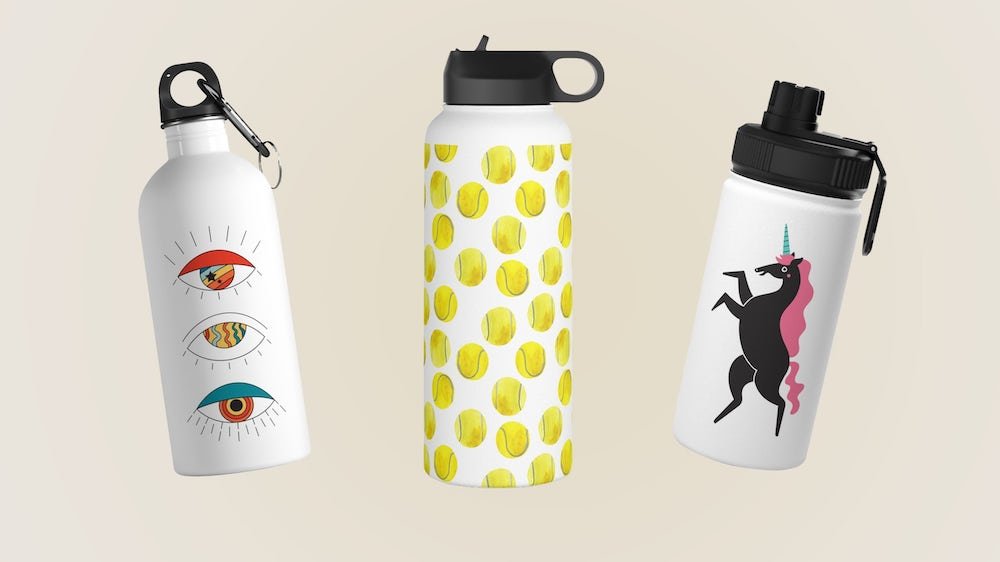
Pros and cons of selling white label products
Pros:
- Cost-effective: White labeling enables businesses to significantly reduce expenses on research, development, and production.
- Quick Market Entry: With no need for a lengthy product development phase, brands can launch and reach customers much faster.
- Marketing Focus: By outsourcing production, companies can dedicate more time and resources to building a strong brand identity and executing effective marketing strategies.
- Scaling Options: White label products allow for rapid expansion of product lines, enabling businesses to swiftly meet growing market demand.
Cons:
- Limited Control: When relying on white label solutions, companies have less oversight over the manufacturing process, which can impact production reliability and availability.
- Limited Customization: Although some customization is possible, white label products generally lack the distinctiveness offered by private label or fully custom solutions.
- Brand Dilution: If the quality of the white label product falls short, it may tarnish the reputation of the associated brand, leading to negative consumer perceptions.
These factors must be carefully weighed to determine if white label products align with your business goals and brand strategy.
Start Selling Your Own Branded Products Today
With every technological advancement, new automation tool, and expanding sales channel, the barriers to launching your own business continue to shrink. White labeling empowers you to kickstart your venture - whether it's a side gig using a print-on-demand service or a streamlined dropshipping website - without the burdens of heavy upfront investments or complex production processes.
Now is the perfect time to harness these opportunities, build your brand, and start selling your own custom-branded products to a growing global audience.